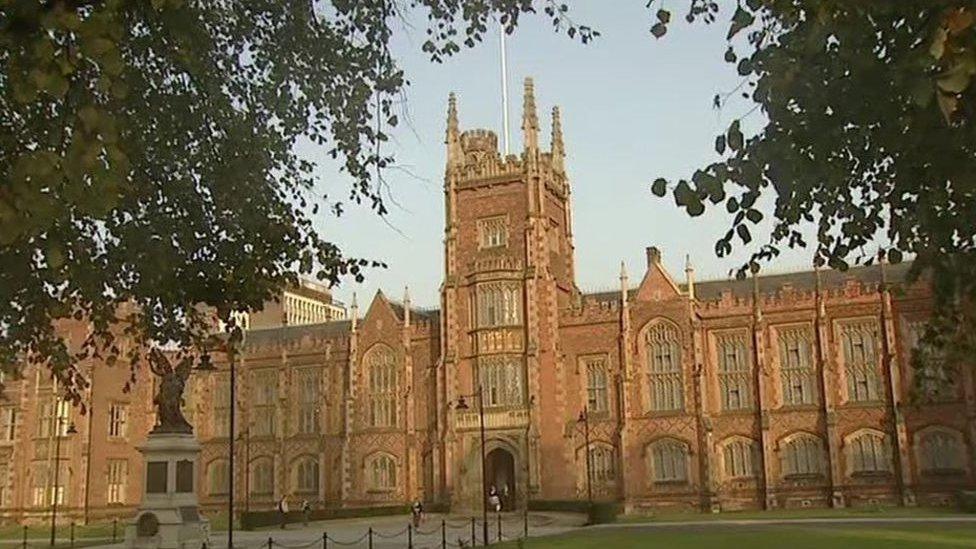Northern Ireland students in campaign against sex assault
- Published
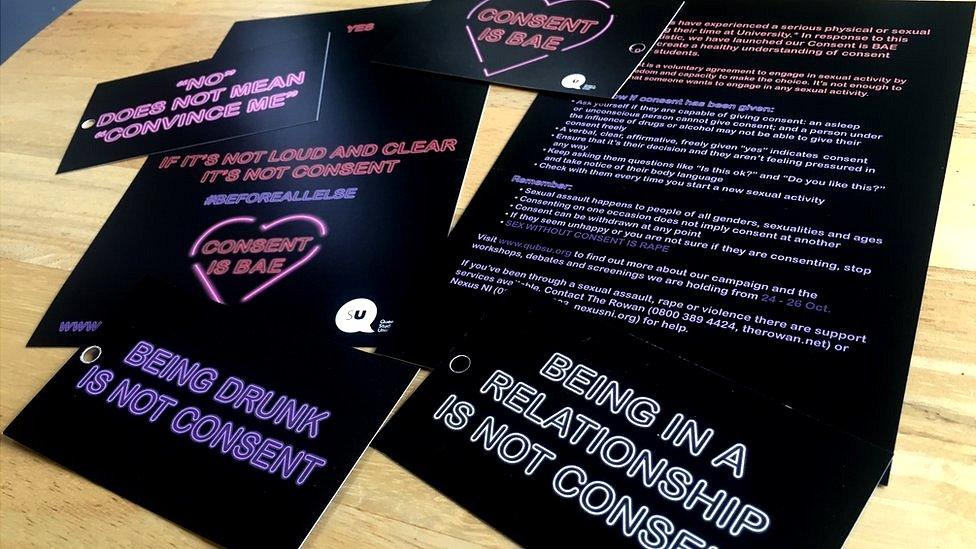
Students created leaflets challenging preconceptions around sexual consent and harassment
Students in Northern Ireland are working with their universities to prevent sexual assaults on campus.
A report by a Universities UK taskforce, external has urged universities to take a "zero-tolerance" approach and provide better support to victims.
It was commissioned amid concerns about sexual harassment at UK universities.
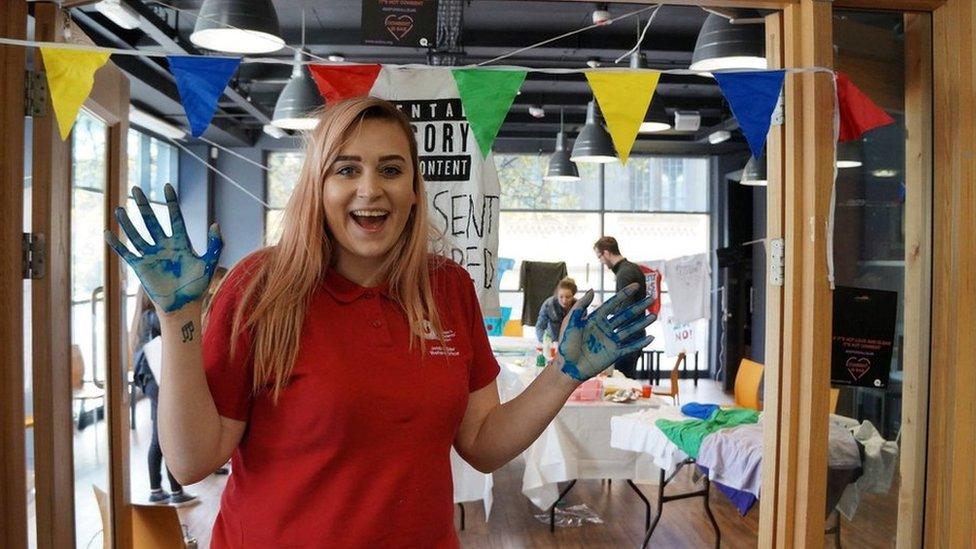
This campaign is Queen's University's first focused solely on issues of sexual harassment and assault
While no comprehensive figures exist, one in seven female students polled in a 2010 student survey, external said they had been assaulted while at university.
The report also found that 68% of those surveyed recorded being subject to some form of verbal or physical sexual harassment on campus.
The National Union of Students (NUS) has been integral invoicing student concerns around sexual harassment and so-called lad culture across institutions.
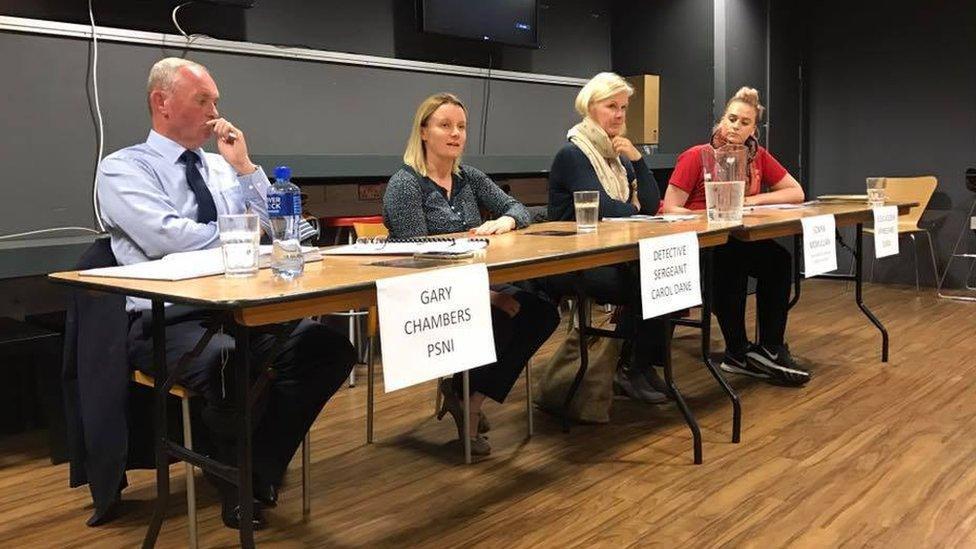
A panel event with PSNI and Women's Aid discussed the laws around consent
Students at Queen's University in Belfast (QUB) has taken a proactive approach, working with the Police Service of Northern Ireland and rape crisis and counselling services to offer workshops, discussion groups and Q&As for this year's students.
Events also included a screening of The Hunting Ground, an Oscar-nominated documentary about the perceived failure of US college administrations to deal with the increasing incidence of sexual assault on college campuses.
QUB welfare officer Jessica Elder said she hoped her Consent is Bae initiative would become a regular campaign for the students' union, alongside mental health and other sexual health awareness.
Bae - short for 'before anyone else' - is a slang term meaning affection towards something and reflects Ms Elder's attempt to break existing taboos surrounding sexual harassment and assault on campus.
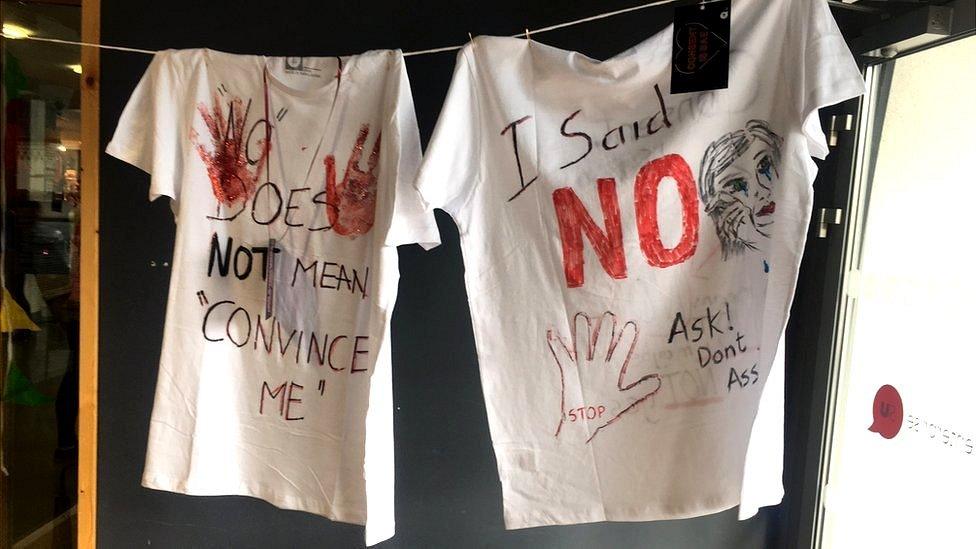
The campaign included a 'clothesline project' for silent expression of emotions, experiences and concerns
A qualified nurse, she ran for office with the idea central to her manifesto.
"It's something that people should be educated around and shouldn't feel awkward or uncomfortable talking about consent because it is an issue every day," she told BBC News NI.
"The clothesline project we are doing today allows people to talk about consent without verbalising it.
"People can express their feelings without feeling uncomfortable."
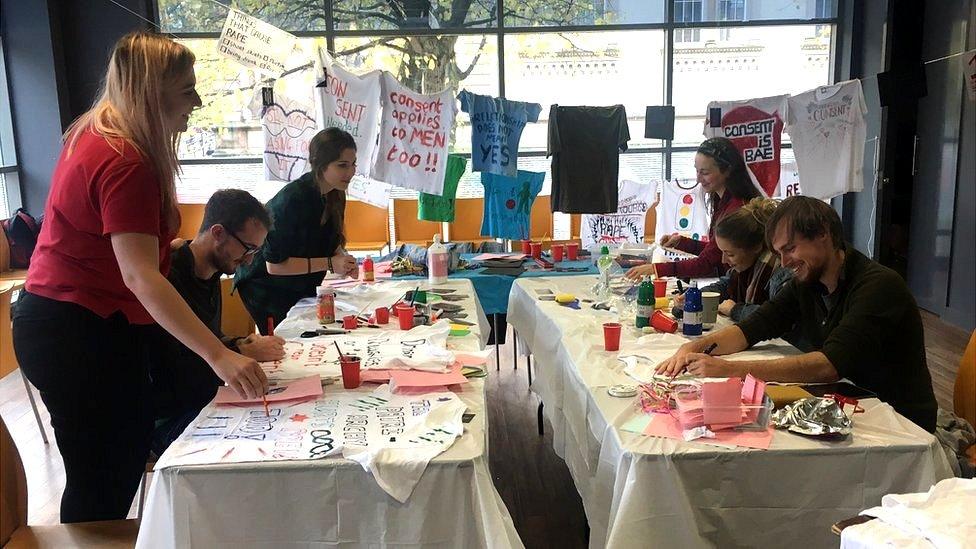
At one event students were invited to express their feelings around consent creatively
Clothesline projects have been used worldwide to address issues of violence against women by providing a vehicle for silent expression of personal emotions and experiences.
A week-long series of events, ending on Friday, has aimed to create a safe space for students, giving them a platform to "talk openly with like-minded people".
The campaign has reached hundreds of students, with events proving very popular.
"Social media has blown up a bit, people are just really positive that the student's union is running a campaign like this," said Ms Elder.
"They feel it's really important."
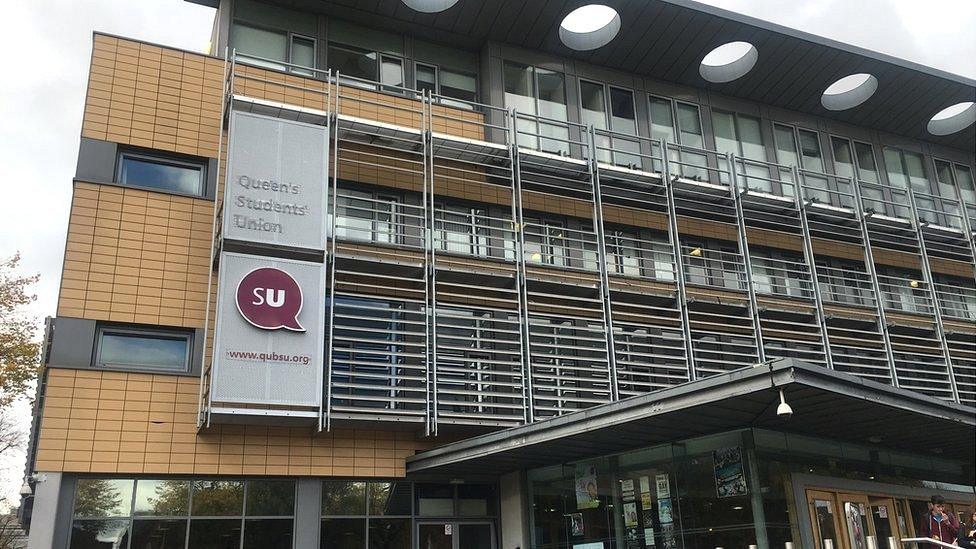
The consent directive has been wholly created and run by students at Queen's University
NUS-USI women's officer Collette McAllister said: "There has to be a zero tolerance approach to sexual harassment, hate crime and violence amongst students and also wider society.
"It is also crucial that all survivors of sexual violence are provided with robust support, as outlined within this report.
"It is absolutely imperative that all education institutions in Northern Ireland take on board and implement the guidance and recommendations.
"All students must be able to study in a safe, inclusive and welcoming environment."

NUS-USI has campaigned for 'strong measures to tackle sexual harassment on campus'
A number of universities across the UK and Ireland have already introduced recommended and compulsory sessions as part of students' fresher's week inductions.
Ulster University has also announced it is to host a conference in November promoting safer relationships among students.
Twitter campaigners used the hashtag #UnsafeAtUni, external after the report's release to encourage victims to speak out about harassment faced on campus.
- Published24 October 2016
